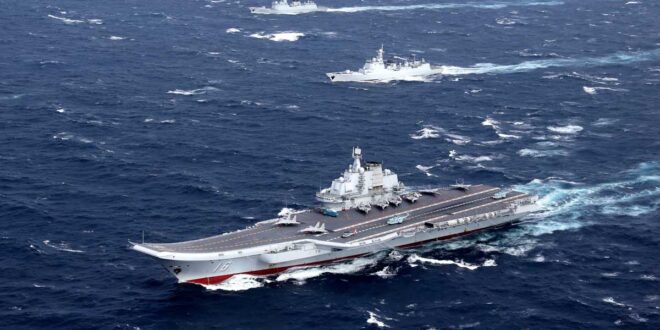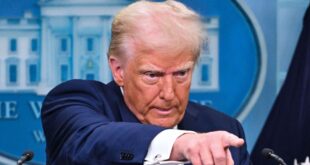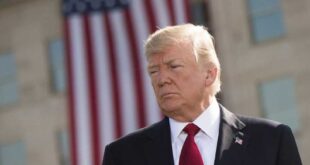The Taiwanese authorities have expressed their fears that the international community is preoccupied with what is happening in Ukraine, which might allow China to make military moves towards the island, so that Beijing, in turn, confirms that Taiwan is an integral part of its territory, considering that Taiwan is not Ukraine. Here, Taiwan called for vigilance against Chinese military activities, through Taiwanese President “Tsai Ing-wen”, who called on the United States of America and the international community to enhance its vigilance over Chinese military activities, at a time when the international community is preoccupied with the Ukraine crisis.
The Chinese, as well as the US, fear of Taiwan comes through the Taiwanese acquisition of the advanced electronic chip and connector industry. Where one Taiwanese company “Taiwan Semiconductor”, dominates more than half of the global market in the chip industry. The Chinese acquisition of Taiwan may give Beijing the opportunity to restrict this industry that the countries of the whole world need.
The statements of US officials on Taiwan come with regard to China’s provocation by increasing US military sales to the Taiwanese island, which was confirmed by the US Defense Security Cooperation Agency, that it had concluded a deal with Taiwan, including missiles and equipment used by “F-16” fighters, anti-radiation missiles and other missiles, such as: Air-to-air and advanced missiles. The US National Security Adviser Jake Sullivan confirmed that “his country’s authorities will take all possible measures to prevent Taiwan’s reunification with China by force. Our general policy is that we will take all possible measures to ensure that this never happens”, he said during his participation in a conference organized by the Economic Club in Washington.
However, China rejects the principle of official relations between the United States of America and Taiwan, which is what Chinese President Xi Jinping assured his American counterpart, Joe Biden, that: “the Taiwan issue needs to be properly handled in order to avoid any negative impact on Sino-American relations”. The Chinese Ministry of Defense has also protested and affirmed its firm opposition to US arms sales to Taiwan, and has made persistent objections to Washington. This prompted a number of US congressmen to provoke China, by calling for the United States and its allies to speed up the delivery of weapons to Taiwan in the coming years to help the island defend itself, under the pretext that Taiwan needs weapons such as air defense systems and weapons that can target ships from land. Knowing that the United States of America is the most important arms supplier to Taiwan. Beijing has repeatedly demanded a halt to US arms sales to Taiwan, viewing it as unwarranted support for the democratically governed island over which Beijing claims sovereignty.
Taiwan has complained since last year in 2022 of a delay in the delivery of US weapons to it, such as Stinger anti-aircraft missiles, as arms production companies diverted supplies to Ukraine at a time when it was fighting Russian forces. This issue has alarmed some US lawmakers. Taiwan said its defense spending this year, 2023, will focus on supplying weapons and equipment for a “comprehensive blockade” by China, including spare parts for F-16 fighters and replenishing weapons stocks. The US State Department approved the potential sale of ammunition and logistical support to Taiwan in two separate deals worth up to $440 million.
In the face of those American and Taiwanese provocations to China, China began conducting war maneuvers around the island constantly, with missiles fired over Taipei, the Taiwanese capital, and declared no-fly and sailing zones in simulation of what it would do if it tried to blockade Taiwan during a war. However, the United States ignored China’s core concerns, violently interfered in China’s internal affairs, and deliberately stirred up tension in the Taiwan Strait.
This prompted a number of US officials to assert that relations between the US and China have deteriorated sharply, and that recent diplomatic meetings, including between US Secretary of State Anthony Blinken and China’s chief diplomat Wang Yi, were important to reduce the potential for escalation. Hence, the United States of America is studying whether it needs to change the location of some American forces within the Asia-Pacific region. The majority of US forces in the region are located in Northeast Asia, including more than 30,000 US troops at the Guam base in South Korea, and 56,000 troops at the Japanese base in Okinawa.
 Geostrategic Media Political Commentary, Analysis, Security, Defense
Geostrategic Media Political Commentary, Analysis, Security, Defense





